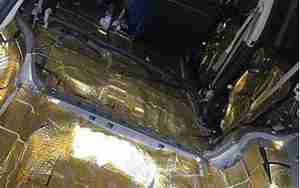
企图心,不仅仅是追求,更是态度
#头条创作挑战赛#
企图心,乃人生之引擎,推动着人们朝着目标和成功疾驰。它是一种内心的火焰,燃烧着人们的激情和决心,让他们跨越重重困难,奔向未知的彼岸。
拥有企图心的人,心中有一幅清晰的未来画卷,每个线条都描绘出他们的目标与期望。他们不畏艰难,不怕困苦,带着无畏的决心和坚韧的毅力,走在追求成功的道路上。他们的行动,像巨大的轮转,推动着他们向前,无畏无惧。
企图心就如同天上的星辰,照亮人们的前路,引导他们创新、突破,超越自我。它让人们不满足于现状,不断寻找新的机会,新的挑战,不断推动自己向前。
然而,企图心并非简单的渴望和追求,它更是一种选择和平衡。过度的企图心可能会照亮人们的心,但也可能让他们的视线迷失在目标的执着中,忘记了身边的美好。因此,成功的人们不仅有强烈的的企图心,更有智慧和平衡,他们知道如何在追求成功的同时,保持对生活的热爱和欣赏。
所以,让我们带着企图心,向着成功,向着更高更远的目标进发。同时,也让我们保持平衡,珍惜每一个瞬间,让我们的生活充满了喜悦和满足。因为,企图心,不仅仅是追求,更是生活的态度。
营销第一要素《企图心》
营销系列文章之二十一《营销第一要素,企图心》
强大的企图心为第一要素
就是你首先要敢要,这个社会到处都是机会,到处都是钱,我认为你有多大心就有多少钱,你想多少就是多少,如果不去折腾,如果你不去行动,如果你不去做,你永远也不会体会到有一天你在赚钱的时候而不去数钱的感觉。
那我告诉你,我已经有强大的企图心了,应该做什么呢?亲,
所有的有钱人有一条做的最棒的,
所有的有钱人有一条做的最棒的,
所有的有钱人有一条做的最棒的,
画家要有钱,是画画好加销售好,画画好加销售不好,画家肯定没有钱。
装修公司是工程设计好加销售好。
驾校是服务模式好加销售好。
找女朋友要自己长的好加销售好,自己要是销售不好还不行
那么企图心到底是什么?
其实企图心是一种内在的表现,但是它要转换成我们现实中的行动,行动,动作,不停的动作,不断的行动,知道不等于得到,行动才会有结果。你不能说:我有企图心,从此以后又睡觉去了,是不是,要不断的做。
你要想你的销售单多,那么你的行动一定要大
如果你的伙伴是10分的努力,我只有5分,但是我做3个5分,就能超过你一个10分,做营销做销售不要懒,一定要勤奋,把企图心转化成大量的行动。
企图心让你产生大量的行动,让你坚持下去,第一条
那么第二条是什么呢?
准备
明天继续……营销第二要素《准备》
我是东方,一个爱学习的80后。欢迎互动交流,随时骚扰
易混动词词义辨析
1.accept,receive
(1)accept“收下”,是有意识地“接受”。
(2)receive不涉及是否同意,单纯指“收到”这一事实。
He received a gift from her,but did not accept it.
他收到了她的礼物,但没有接受。
2.accomplish,achieve,complete,finish
(1)accomplish 圆满地完成预计要完成的事情,着重经过努力、坚持不懈而达到目的。
常用名词搭配:aim task purpose mission object journey voyage
The explorers accomplished the voyage in five weeks.
探险队员们在5周内完成了航程。
(2)achieve 完成(事情);达成(目的);赢得(名声)。
常用名词搭配victory success fame purpose
I achieved all I hoped to do today.我已经完成今天我想做的事。
(3)complete“完成,完工”,侧重所完成的结果的完整性。
A second child would complete their family.第二个孩子使他们的家更加完美了。
(4)finish“完成,结束”某项工作时,与complete 同义;finish后跟动名词作宾语,往往带有反面的意味,如“用完”、“吃完”等。
He finished writing the letter last night.这封信他是昨晚完成的。
He finished his meal.他吃完饭了。(不可用completed)
3.announce,declare,state
(1)announce 指官方或个人公开宣布的,尤指具有新闻性质的事情;其后不接双宾语。
They announced the date of their wedding in the newspaper.他们登报宣布了婚期。
(2)declare“宣布”,指国家、政府、团体或个人正式、公开地表明态度,说明事实真相或发布消息、政策等。
He declared the story (to be)false.他断言那篇报道是假的。
(3)state“陈述,声明”,用于正式场合。
He states his opinion.他陈述了他的意见。
He didn’t state whether the article was true.他没明言那篇报道是否真实。
4.appear,seem,look
(1)appear指外在给人的印象,但有时实际并非如此。
He appears to be your friend,but I doubt if he is.
他看起来好像是你的朋友,但我不大相信。
(2)seem指有一定的判断或证据,因而有接近实际情况的意思。
The clock seems to be wrong.这钟似乎走得不准。
(3)look指外貌状况给人留下了印象,着重于根据视觉得到的印象。
The man looks about fifty.这男人看起来约50岁。
5.argue,quarrel,discuss
(1)argue“辩论,争论”,强调“说明,论证”和“企图说服”的意思。
I don’t want to argue about it any more.我不想就这个再进行争论了。
(2)quarrel“争吵”,意为“吵吵闹闹地争论”,当人们争吵时,一般都大声地叫嚷。
I’m very sorry for quarrelling with you last night.我很抱歉昨天晚上和你吵架。
(2)discuss“谈论,讨论,议论”或“商量”的意思。
The Toms discussed selling the house.汤姆一家商量过卖房子的事儿。
6.require,demand
(1)require“命令,要求”,正式用语,常用于被动语态。
We’ll do all that is required of us.需要我们做的我们都会做好。
(2)demand“要求,查询”,语气较重,指强烈要求得到某件东西并坚持一定要得到它。
She demanded that we (should)give her an immediate answer.
她要求我们立刻给她一个回答。
7.attempt,manage,try
(1)attempt“努力,尝试,企图”,常指一次性的尝试。
They attempted to master the technique in four weeks.
他们想在4个星期内掌握这门技术。
(2)manage“设法做到”,指花费精力、设法把某事终于做成功。
Without her I couldn’t have managed all these things.没有她我不可能做完这些事。
(3)try“试图,努力,尝试”,指花费精力去做某事,但仍有不成功的可能。
He tried to finish his work in time but failed.他试图按时完成他的工作,但失败了。
8.beat,win,strike,defeat
(1)beat“击败”,在竞争、战争、比赛中彻底击败对手。
She beat her brother at tennis.她在网球上击败了她的兄弟。
(2)win“赢得”,后接宾语为比赛、战争等。宾语不能是人。
win a game/war/battle/bet/race/match/an argument/an election/a fine victory
(3)strike“敲打;划(火柴);用力打;一次性打击”。
He struck a match to smoke.他划了一根火柴点烟。
(4)defeat“击败”,指在竞技、竞赛中击败对手;也指(希望、计划等)受挫或失败。
He’s sure to defeat his opponent in final.他肯定能在决赛中击败他的对手。
9.believe,believe in
(1)believe“相信”,表示相信事物的真实性或人的诚实,后接名词、代词或从句做宾语。
(2)believe in“信奉,信仰”,表示对某人的信任,对真理、主张、宗教的信仰。
I believe him.(=I believe what he says)我相信他的话。
Do you believe in fairies? 你认为真有仙女吗?
10.destroy,ruin,damage,break
(1)destroy 常指彻底的、不能或很难修复的“破坏”、“毁坏”,程度较深。
The earthquake destroyed almost the entire city.那次地震几乎毁灭了整个城市。
The forest was destroyed by fire.森林被火烧毁了。
(2)ruin 指严重的以至于不能修复的“破坏”,长期损坏的结果;可用来表示抽象概念。
The floods ruined many precious paintings.这次水灾毁坏了很多珍贵的画。
You’ll ruin your health if you go on like this.这样下去你会毁了你的身体的。
(3)damage 指程度较小的“破坏”、“损坏”,被破坏的物品可以重新修复。
The storm damaged several houses in the village.暴风雨损坏了这个村子的几间房子。
The car was only slightly damaged in the accident.这辆车在事故中只受到轻微的损坏。
(4)break“破坏”、“打破”、“打碎”的意思。
Who broke the teapot? 谁打破了茶壶?
The boy fell from the tree and broke his leg.这男孩从树上跌下来,跌断了腿。
11.choose,select,elect,pick
(1)choose“挑选、选择”,有“最终选定”的含义,是最普通的用语。
You can choose a book from these.你可以从这些书中选一本。
He chose Miss Lily for his wife.他选择莉莉小姐作为他的妻子。
(2)select“精选,挑选”,语气比choose 正式。
We selected some for seeds.我们选了一些做种子。
The boy selected the best things from the shop.男孩从店里精选了最好的东西。
(3)elect“选举,推选”接班人或职位。
All the people agreed to elect him our chairman.
所有的人都同意推举他为我们的主席。
We elected him monitor of our class.我们推举他为我班班长。
(4)pick“挑选,挑拣”,是仔细挑剔和苛刻地选择,常与out 搭配。
Will you help me pick strawberries? 你帮我摘一下草莓好吗?
Will you pick some apples for me? 你可以为我摘几个苹果吗?
12.contain,include,involve
(1)contain“包含,装有,容纳”,着重其中所容纳或装的量,或包含的成分。
The water in the lake contains salt.这个湖的湖水包含盐分。
The bowl contains a variety of fruit.碗里装有各种水果。
This bottle contains two glasses of beer.这个瓶子装了两杯啤酒的量。
(2)include“包括,包含”,多指包含部分,即该物是另一物的一部分。
The health club includes a gym,swimming pool,and locker room.
健身俱乐部包括体操房、游泳池和更衣室。
The list included certain foods children like to eat.
这张菜单包括了一些儿童喜欢吃的食品。
(3)involve“牵涉,包含”,指必然包含某种结果。
I didn’t realize putting on a play involved so much work.
我那时不了解演一场戏竟要做那么多的工作。
Painting the classroom involved moving all the desks and chairs out.
要对教室刷油漆就得把所有的桌椅搬出去。
13.pay,take,cost,spend,charge,buy
(1)pay表示付给人家钱、帐单等,主语是人。
sb.pay sb.for sth.
sb.pay+钱+for sth.
sb.pay sb.+钱+for sth.
sb.pay for sth.
I paid him for his service.我付了他的服务费了。
I paid $10 for the book.我花十美元买的这本书。
I paid him $1000 for the used car.我买他这辆二手车花了一千美元。
Let me pay for the broken window.我来赔打破的玻璃窗的费用。
(2)take指“花费(时间)”。
sb./sth.+takes+时间+to do sth.
It+takes+时间+to do sth.
I took half an hour to get home yesterday.昨天我回家用了半个小时。(主语是人)
Reading the novel took her the whole day.读这本小说花了她一整天的时间。(主语是某种活动)
How long does it take to go there by train? 坐火车去那里要多少时间?(it作形式主语)
(3)cost指“价值为,花费(时间、金钱、劳力)”和“使失去(生命、健康)”,主语为事物。
sth.cost (sb.)+钱/时间
It cost (sb.)+钱/时间
sth.cost sb.sth 是某人失去某物
His house cost him a lot of money.他的房子花了他很多钱。
It costs $1000 a year to run a car.使用一辆车每年要花一千美元。
The moment’s stop cost him his lead.那瞬间的停顿使他失去了领先的位子。
(4)spend指“花费(金钱),需要(时间)”。
sb.+spend+时间/钱+(in)doing sth.
sb.+spend+时间/钱+on sth.
He spent his last years (in)teaching and editing earlier writings.
他把晚年用于教书和编撰以前的著作。
He spent a lot of money on books while in college.
他在上大学时花了很多钱买书。
(5)charge 收费,要价
charge sb.+钱
charge sb.+(钱)+for sth.
charge for sth.
They charged advertisers $5,000 a minute.
他们向做广告的人每分钟收取5000美元的巨额广告费。
He charged me 100 dollars for this coat.这件外套他要了我100美元。
Hotels charge for services.旅馆收服务费。
(6)buy“购买”:buy sth.for+钱
I bought the computer for $600.我花600美元买了这台电脑。
He bought it for very little money.他买它只花了一点点钱。
【比较】 我六元钱买了一本词典。
①I bought the dictionary for six yuan.
②The dictionary cost me 6yuan.
③I paid six yuan for the dictionary.
④ I spent six yuan on the dictionary.
14.damage,hurt,injure
(1)damage“毁坏”或“损坏”,主要指造成价值、完整性等方面的损坏。
The water they had thrown over everything to put out the fire damaged the books.
为了灭火,他们把水往一切东西上泼,把书也损坏了。
(2)hurt不及物动词,意为“疼痛”;及物动词,意为“伤害”,尤其指精神伤害。
My feet hurt when I walk.我走路时脚痛。
My little boy fell off a ladder and hurt himself.
我的儿子从楼梯上摔了下来,把自己摔伤了。
She was hurt to find that no one admired her performance.
她发觉无人赏识她的表演,她为此感到伤心。
(3)injure“伤害,损害”,指身体上的伤害(如意外受伤等),可用于被动结构。
He injured his left arm in a car accident.在一次车祸中他的左臂受伤了。
In the railway accident 300 people were injured.在那次火车事故中有300人受伤。
15.divide,separate
(1)divide“划分”,指把一个整体分成若干部分,也用于象征意义的划分、割裂。
The class is divided into four groups.这个班级被分成四组。
(2)separate“分离”,把原来结合在一起的构成整体的或混杂的人或物、团体、机构或部件等拆开、分开。或指由于事物的阻隔而彼此分离。
The child was separated from his parents.孩子与父母分开了。
16.dress,have on,wear,put on,be in,try on,pull on
(1)dress 及物动词,后面的宾语是人时,意为“给某人穿衣服”,表示动作,与in 搭配接衣物,被动形式表示状态。
She dressed her daughter in a white skirt.她给女儿穿了条白裙子。
The boy is old enough to dress himself.那男孩已长大了,能自己穿衣服了。
She is dressed all in white.她穿一身白衣服。
(2)have on 表示状态,不用进行时态,宾语为衣帽、鞋袜、眼镜等。
He has on a red shirt.他穿着一件红衬衣。
At the Spring Festival,all children have on new clothes.春节那天,所有孩子都穿上新衣。
(3)wear 表示状态,可用于进行时态,宾语为衣帽、鞋袜、首饰、眼镜、胡须等。
He wears an army uniform.他穿着军装。
She was still wearing her thick coat.她仍穿着厚外套。
She was wearing a gold ring.她戴着一枚金戒指。
He wore dark glasses to protect his eyes.他戴墨镜保护眼睛。
Does he wear a beard? 他留胡子吗?
(4)put on 表示动作,宾语为衣物,反义词为take off。
It’s cold today.You’d better put on more clothes.
今天天气冷,你最好多穿些衣服。
Put on your coat,or you will have a cold.穿上大衣,不然你会感冒的。
(5)be in 表示穿着的状态,宾语为颜色或衣物的名词。
The man in blue is our teacher.穿蓝衣服的那个人是我们的老师。
There was a girl in red.有位穿红色衣服的姑娘。
(6)try on 试穿
Mother was trying on a new dress.妈妈正在试穿新衣。
(7)pull on 表示动作,反义词是pull off,表示不经心地、随便地或匆忙地穿上衣服。
She pulled her clothes on and went to school.她匆匆忙忙地穿上衣服上学去了。
17.fit,suit,match
(1)fit“合身”,表示大小、尺寸合适。
The jacket fits me perfectly.这衣服正合我身。
These shoes don’t fit me.Have you got a larger size?
这鞋我穿不合适。你们有大点的吗?
(2)suit“适合”,强调款式、颜色等“合适,适当”。
That haircut suits you.那种发型很适合你。
The red jacket fits me well,but doesn’t suit me.这件衣服大小正好,但不适合我。
(3)match“相配”,强调一事物与另外一事物相配,相当于go with。
Your cups match your saucers.您的杯子和茶碟非常相配。
The color of the curtains doesn’t match that of the sofa.
窗帘颜色和沙发颜色不相配。
18.fix,mend,repair
(1)fix“修理,组装”,指“修理”时与repair 通用。
I had my radio fixed/repaired.我让人修了收音机。
(2)mend“修理,修补”,多指被磨损的东西,特别是修补由于穿戴或使用等原因而破烂或损坏的东西。
Your shoes need repairing (mending).你的鞋子需要修理。
(3)repair“修理”,主要指修理大件的东西,特别指修理由于使用或时间较长等原因已经损坏的东西,同时,修理起来也较复杂。
He had his house repaired.他让人修了房子。
19.join in,attend,take part in,join
(1)join in 参加一些小型活动,常用join sb.in (doing)sth.句式。
Everyone joined in the game.每个人都参加了游戏。
They joined me in congratulating you.他们与我一道向您恭贺。
(2)attend 多指出席会议、演讲、上学等。
I promised to attend the show.我答应去观看文艺演出。
He decided to attend the meeting.他决定出席这个会议。
(3)take part in一般指参加一些大型的活动、会议等,参加者往往起一份作用。
Will you take part in the English evening? 同我们一起参加英语晚会好吗?
The Swiss did not take part in the two World Wars.瑞士人没有参加这两次世界大战。
(4)join“加入某个党派或社会团体”从而使自己成为该党派或团体的一员。
I will never forget the day when I joined the Party.我永远也忘不了入党的那一天。
20.rob,steal
(1)rob指通过威胁、暴力或武力的“抢劫”行为,常用rob sb.of sth.句式。
The man robbed her of her bag.那个男子抢走了她的手提包。
(2)steal“偷盗”某人的财物,常用steal sth.(from sb.)句式。
Who stole my money? 谁偷了我的钱?
Prometheus managed to steal fire from heaven and secretly brought it down to men.
普罗米修斯设法窃走了天火,偷偷地把它带给人类。
21.seat,sit
(1)seat 及物动词,意为“使就座;容纳”,常用于seat oneself/be seated 句式中;主动式强调动作,被动式强调状态。
He seated himself at the desk.他自己坐在桌子旁。
They were seated at their desks.他们在桌子边坐好了。
I seated him in the chair.我让他在椅子上坐下来。
The dining-table seats 20 guests.这餐桌能坐下20个客人。
【比较】 新会议厅可容纳一万人。
①The new hall can seat ten thousand people.
②The new hall can hold ten thousand people.
③The new hall can admit ten thousand people.
(2)sit 不及物动词,强调状态,sit down 强调动作。
The old lady is sitting near the stove.老太太坐在火炉旁。
the old lady is seated near the stove.
After standing for so long,it was a pleasure to sit down and rest.
站了那么久以后坐下来休息真是件美事。
22.shake,tremble,shiver
(1)shake“发抖”,是表示“发抖”的最普通的词。
She was shaking with cold.她因寒冷而颤抖。
(2)tremble“颤抖”,是因恐惧、寒冷而导致身体无意识地发抖。
He was trembling with fear.他因害怕而战栗。
(3)shiver“颤抖”,是指因寒冷、恐惧而导致身体一瞬间发抖。
I shivered with cold.我冷得发抖。
23.agree on,agree to,agree with
(1)agree with后可接人或what从句,表示“同意某人的意见”;还有“与……一致”之意。
Whom does he agree with,his father or his mother?
他是赞成他父亲还是他母亲的意见?
We don’t agree with what the teacher has said.
我们不赞同老师所说的话。
The climate there doesn’t agree with me.那里的气候不适合我。
(2)agree to 用于“同意、赞同某一计划、建议、提议、安排、条件”等。
He’s agreed to our suggestion about the holiday.他已经同意我们的假日计划了。
They said they couldn’t agree to such strict terms.他们说他们不同意这样苛刻的条件。
(3)agree on表示“在某事或某方面取得一致意见”。
We all agreed to build a bridge over the river,but couldn’t agree on where to build it.
我们都同意在河上建座桥,但未能就建设地点达成一致。
Can we agree on a date for the next meeting? 我们能不能为下次会议确定一个时间?
24.be known as,be known for,be known to
(1)be known as作为……而闻名
She was well known as an excellent dancer.大家公认她是一位优秀的舞蹈家。
(2)be known for 因……而闻名
West Lake is known for its beautiful scenery.西湖以风景优美而闻名。
(3)be known to 为……所知,为……所熟知
He’s known to the police as a criminal.在警察眼中他是罪犯。
25.catch fire,set fire to,be on fire
(1)catch fire 不及物动词词组,强调动作,意为“着火”。
The clothes caught fire and were destroyed.衣服着火了,并被烧毁了。
(2)set fire to sth./set sth.on fire 及物动词词组,强调动作,意为“点燃,使燃烧”。
Who set fire to the house? 谁放火烧的房子?
who set the house on fire?
(3)be on fire 表示着火的状态。
The old house was on fire.那间老屋着火了。
26.compare ...to,compare ...with
(1)compare ...to表示“把(一物)比做(另一物)”。
Shakespeare compared the world to a stage.莎士比亚把世界比做一座舞台。
(2)compare ...with表示“把(一物)与(另一物)相比较”。
Compared with western countries,China uses materials very carefully.
与西方国家相比,中国对材料的使用非常仔细。
【提示】 compared to=compared with,意为“与……相比”。作状语时可互换。
Compared to/with him,I am a poor man.和他相比,我是个穷光蛋。
27.deal with,do with
(1)deal with“应付,处理;论述,涉及”,常与how连用。
How shall we deal with these problems? 我们如何解决这些问题?
(2)do with“处理,安排,容忍,与……相处”,常与what连用。
What shall I do with it? 我怎样处理它好呢?
28.insist on,stick to
(1)stick to“坚持(意见、看法、规则等)”,to为介词,接名词或动名词。
We stick to the point that theory comes from practice.
我们坚持理论来源于实践的观点。
(2)insist on“坚持干某事”。
The little boy insisted on going with his parents.
这个小男孩坚持要和他父母一起去。
29.result in,result from
(1)result in“导致”,强调某事导致何种结果,或获得某种成果。
The strike resulted in the confusion.罢工导致了这场混乱。
(2)result from“起因于”,强调结果起因于某事。
The confusion resulted from the strike.这场混乱起因于罢工。
30.run out,run out of
(1)run out“用完”,不及物动词短语,主语一般是物,用主动形式表示被动含义。
My ink is running out.我的墨水快用完了。
(2)run out of“用完”,及物动词短语,主语一般是人,多用于完成时和进行时。
I have run out of ink.我的墨水用完了。
I’m running out of ink.我的墨水快用完了。
31.search,search for,in search of
(1)search“搜查”,及物动词,宾语只能是“某地”或“某人”,强调“在某地搜查”或“搜身”。
After we had landed,the plane was searched thoroughly.
我们着陆后,飞机被彻底搜查了一遍。
(2)search for“搜寻,寻找”,强调为具体目标而去搜查某一对象。
I searched everywhere for the book.我到处找这本书。
(3)in search of为介词短语,后接“寻找的目标”,常作目的状语或表语。
I’m in search of a house to let.我在寻找出租的房屋。
They set sail again and headed south and west in search of a new land.
他们重新启航向南和向西行驶以寻找新的陆地。
【高考演练】
1.【安徽】Shakespeare’s writing is still popular today.It has really________the test of time.
A.failed B.stood C.taken D.conducted
【答案】B 考查动词词义辨析。句意:莎士比亚的作品今天依旧很受欢迎,它经受住了时间的考验。根据前一句可推知,后一句意为“莎士比亚的作品经受住了时间的考验”。stand the test of time经受住时间的考验。fail the test of time未能经受住时间的考验。故选B。
2.【福建】It is widely acknowledged that students should be________in terms of overall quality.
A.supported B.matched C.evaluated D.controlled
【答案】C 考查动词词义辨析。句意:(大家)普遍认为学生们应该得到全面的评价。support 支持,支撑,抚养;match 使相配,比得上;evaluate 评价,评估;control 控制,抑制,管理。故选C。
3.【江苏】Top graduates from universities are________by major companies.
A.chased B.registered C.offered D.compensated
【答案】A 考查动词词义辨析。句意:大学里的优秀毕业生受到大公司的青睐。chase 追逐,追求;register 登记,注册;offer 提供,提议;compensate 补偿,赔偿。根据语境可知A项正确。故选A。
4.【江苏】Legend has it that the origin of the Dragon Boat Festival is to________the soul of Qu Yuan.
A.remember B.remind C.recover D.recall
【答案】D 考查动词词义辨析。句意:传说,端午节的缘由是为了召唤屈原的灵魂。remember 记得;remind 提醒;recover 恢复;recall 召唤,召回。根据语境可知D项符合语境。故选D。
5.【江西】I don’t believe what you said,but if you can prove it,you may be able to________ me.
A.convince B.inform C.guarantee D.refuse
【答案】A 考查动词词义辨析。句意:我不相信你所说的,但是如果你能证明,你也许能够说服我。convince 说服;inform 通知;guarantee 保证;refuse 拒绝。故选A。
6.【天津】My parents always________great importance to my getting a good education.
A.have B.attach C.accept D.pay
【答案】B 考查动词搭配。have 有;attach 黏附;attach great importance to 认为……重要;accept 接受;pay 付款。句意:我父母非常看重的一点,就是我必须接受良好的教育。故选B。
7.【浙江】Last week a tennis ball hit me on the head,but I tried to________the pain,believing that it would go away sooner or later.
A.share B.realize C.ignore D.cause
【答案】C 考查动词词义辨析。句意:上星期一只网球击中了我的头,但我没把疼痛放在心上,因为我相信这种痛苦迟早会过去的。根据句意知,此处用ignore,表示“忽略,忽视”。share 分享,分担;realize 认识到;cause 导致。故选C。
8.【浙江】No matter how carefully you plan your finances,no one can________when the unexpected will happen.
A.prove B.imply C.demand D.predict
【答案】D 考查动词词义辨析。句意:无论你对自己的财务计划得多么周密,没有人能预测到什么时候会发生意外。根据句意知,此处用predict,表示“预料,预测”。prove 证实,证明;imply 隐含,暗示;demand 要求。故选D。
9.【安徽】Terry,please________your cellphone when grandma is talking to you.
A.look up from B.look into C.look back on D.look through
【答案】A 考查动词短语。句意:特里,祖母和你说话时,不要看着手机。look up from 从……抬头往上看;look into 调查;look back on 回顾,回头看;look through 仔细检查。故选A。
10.【安徽】When the sports hero________at our party,he was welcomed with open arms.
A.turned up B.left off C.moved on D.got away
【答案】A 考查动词短语。句意:当那位体育明星出现在我们聚会上时,人们张开双臂欢迎他。turn up 出现,露面;leave off 停止,戒掉;move on 出发,离开,继续前进;对……采取行动;get away 逃离,出发。故选A。
11.【全国大纲卷】Caroline doesn’t have a gift for music,but she________it with hard work.
A.goes back onB.takes away from
C.makes up forD.catches up with
【答案】C 考查动词短语。句意:卡罗琳没有音乐天赋,但她用努力学习弥补了她的不足。此处make up for意为“弥补”。故选C。
12.【福建】As a grass-roots singer,she reads everything she can________concerning music,and takes every opportunity to improve herself.
A.catch sight of B.get hold of C.take charge of D.make mention of
【答案】B 考查动词短语。句意:作为一名草根歌手,她阅读她能得到的与音乐相关的所有资料,并且利用每一次机会去提高自己。catch sight of 看见,发现;get hold of 把握,抓住,得到;take charge of 负责,接管;make mention of 提到,提及。故选B。
13.【江苏】— Dad,I don’t think Oliver the right sort of person for the job.
— I see.I’ll go right away and________.
A.pay him back B.pay him off C.put him away D.put him off
【答案】B 考查动词短语。句意:“爸爸,我认为Oliver不是这项工作的合适人选。”“我明白了,我现在就付清工资解雇他。”pay back 偿还,报答;pay off 还清,付清工资予以解雇;put away 处理,放好;put off 推迟,延期。故选B。
14.【江西】Anyway,we’re here now,so let’s________some serious work.
A.come up with B.get down to C.do away with D.live up to
【答案】B 考查动词短语。句意:不管怎么说,我们都已经在这儿了,那就干点正事吧。come up with 想起;get down to 着手做;do away with 废除;live up to 实行,不辜负。故选B。
15.【陕西】Ralph W.Emerson would always________new ideas that occurred to him.
A.set off B.set about C.set up D.set down
【答案】D 考查动词短语。句意:Ralph W.Emerson总是记下出现在他头脑中的新想法。set off意为“出发,动身”;set about意为“开始,着手”,后跟动词v.-ing形式;set up意为“设立,建立”;set down意为“记下,写下”。故选D。
16.【天津】The two countries are going to meet to________some barriers to trade between them.
A.make up B.use up C.turn down D.break down
【答案】D 考查动词短语。句意:两个国家将举行会面以扫除两国之间的贸易障碍。make up 组成,构成;编造,虚构;和解;use up 用完;turn down 拒绝;关小;break down 扫除(障碍),清除(困难)。根据句中的关键词barriers,可知是扫除障碍,故选D。
17.【浙江】How could you________such a fantastic job when you have been out of work for months?
A.turn off B.turn in C.turn down D.turn to
【答案】C 考查动词短语。句意:你已经失业好几个月了,怎么还要拒绝这么好的工作呢? turn down表示“拒绝”,符合语境。turn off 关掉;turn in 转入,上交;turn to 转向。故选C。
18.【湖北】Two lawyers have donated $50,000 to________our school’s campaign “Help the Needy”,which was started by our former headmaster three years ago.
A.sponsor B.launch C.organize D.plan
【答案】A 考查动词词义辨析。句意:两名律师捐赠了五万美元来资助我校的前任校长在三年前发起的“帮助有需要的人”这一运动。sponsor 资助,赞助;launch 发射;organize 组织;plan 计划。捐钱当然应该是“资助”,故选A。
19.【湖北】Finally,my thanks go to my tutor,who has offered a lot of suggestions and comments on my paper and________every page of my draft.
A.approved B.quoted C.polished D.folded
【答案】C 考查动词词义辨析。句意:最后,我要感谢我的导师,他为我的论文提供了很多建议和看法并且润色了我的每一页草稿。approve 同意;quote 引用;polish修改,润色;fold 折叠。故选C。
20.【湖北】Walking alone in the dark,the boy whistled to________his courage.
A.hold up B.keep up C.set up D.take up
【答案】B 考查动词短语。句意:独自一人在黑暗中走,那个男孩吹口哨给自己壮胆。hold up 举起;耽搁,延迟;keep up 保持,维持;set up 建造,创立;take up 占据,开始从事。keep up one’s courage 保持勇气,鼓起勇气。故选B。




























